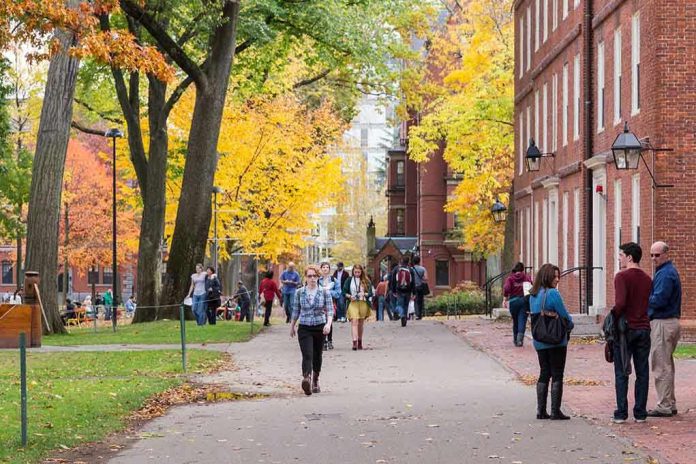
Cal State LA’s decision to let professors move classes online—because of off-campus ICE raids and protests—tells you everything you need to know about how universities now bend over backward to accommodate the anxieties of the so-called “vulnerable,” while the rest of society is left to wonder how much longer American institutions will function as intended.
At a Glance
- Cal State LA allows professors to switch to online classes after ICE raids spark fear among students.
- Faculty can offer excused absences and alternative assignments, citing “extraordinary circumstances.”
- Raids did not occur on campus, but anxiety spread due to nearby enforcement and ongoing protests.
- Policy highlights growing tension between federal immigration law and local academic governance.
University Policy Bends to Fear, Not Facts
Cal State LA, a major taxpayer-funded university, has granted professors the option to move classes online and offer students excused absences—not because of any threat on campus, but because federal immigration enforcement operations were carried out a few neighborhoods away. Let’s be clear: there were no ICE raids at the university. None. But the mere presence of law enforcement in nearby immigrant-heavy districts, combined with a wave of protests, was enough to push the administration to hit the panic button and turn the classroom into a virtual safe space. This decision, announced by Provost Heather Lattimer, was framed as a compassionate response to student “fears” about public transit and commuting. In a city where daily life is no stranger to disruption, it’s remarkable to see policy change not in response to direct danger, but to the possibility that someone’s feelings might be hurt by reality.
Wildfires and other natural disasters have hit the region in recent months, but those events didn’t prompt the same dramatic shift in university operations. It seems only the specter of federal law enforcement—doing the job Congress gave them—is enough to move the academic earth. Professors are now encouraged to work from home, students can skip class if they feel “unsafe,” and the university gets to polish its image as a defender of the “marginalized.” Meanwhile, the rest of us are left to wonder: if this is the new normal, what’s next? Will every federal operation lead to universities shutting their doors and hiding behind computer screens?
Legal and Political Circus: Who’s Really Calling the Shots?
This fiasco isn’t happening in a vacuum. Los Angeles city officials, led by Mayor Karen Bass, have rushed to join legal action against federal immigration enforcement, allying themselves with groups like the ACLU and Public Counsel. Their lawsuit aims to stop ICE raids in the LA area, claiming they are unconstitutional and cruel. This is the same city government that can’t keep the streets clean, but suddenly finds unlimited time and resources to fight the federal government for simply enforcing the law. The power dynamics are obvious: university administrators and local politicians fall over themselves to appease activist groups, while federal authorities become the bogeyman.
The entire episode exposes the rift between federal immigration law—which exists for a reason, despite what open-borders enthusiasts might say—and the academic and political establishment in California, which seems determined to undermine it at every turn. Taxpayers fund these institutions with the expectation of educational excellence and public order. Instead, they’re treated to a never-ending performance of virtue signaling and policy flip-flops, all while basic standards for in-person instruction and accountability erode before our eyes.
Consequences for Students, Taxpayers, and the Rule of Law
For students, especially those who actually want to learn, this policy change means more uncertainty and more disruption. The promise of a stable, in-person education is tossed aside whenever political winds shift. For faculty, the message is clear: your job is to accommodate every conceivable anxiety, no matter how far removed from actual events. And for the wider community? This is yet another example of how public institutions are quick to set aside their core mission in the name of “compassion,” no matter the cost to educational standards or public trust.
Academia’s willingness to bend to every manufactured crisis—especially when it comes to federal law enforcement—should concern anyone who values the rule of law and the integrity of our institutions. While the university claims to be protecting the “well-being” of its students, it’s also teaching them that feelings trump facts and that legal authority is something to be feared and avoided, not respected. If this is what passes for leadership in higher education, taxpayers and citizens have every right to demand better—and to expect that universities will someday remember their true purpose: to educate, not indoctrinate or cower in the face of lawfully executed government policy.




